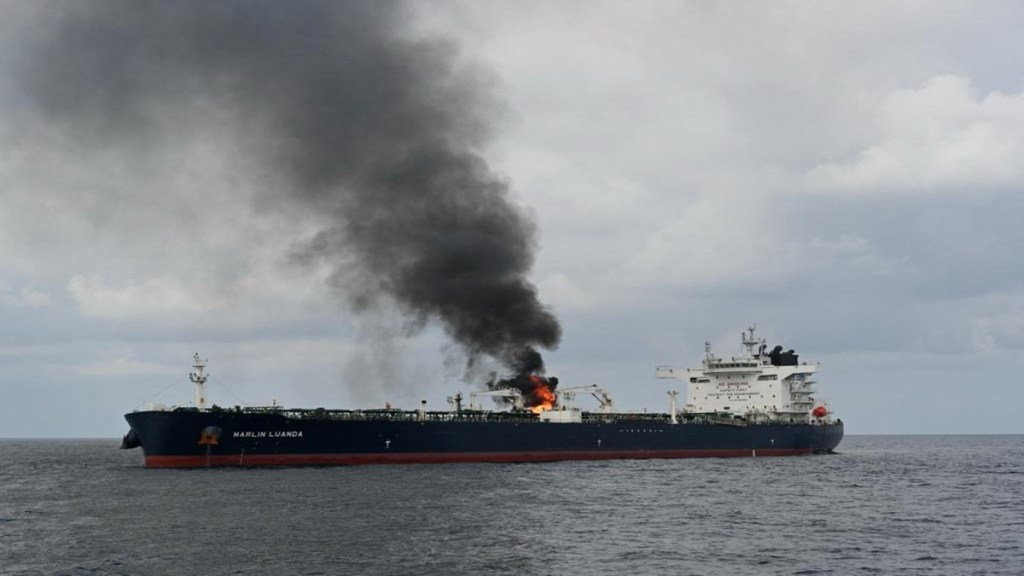The US military has revealed that a missile strike conducted by Yemen’s Houthi rebels on a commercial vessel in the Gulf of Aden on Wednesday has led to the deaths of three crew members and forced the survivors to abandon the ship. The attack marks the first fatal incident since the Yemeni group, aligned with Iran, began attacks on vessels in one of the busiest maritime routes globally. The attacks are in response to Israel’s conflict with Gaza.
The attack on the Barbados-flagged True Confidence escalates tensions along a vital sea route connecting Asia and the Middle East to Europe, which leads to significant disruptions to global shipping. Since November, the Houthis have initiated attacks, and despite the US commencing an airstrike campaign in January, their assaults persist unabated.
In a direct response to the Houthi claim, the United Kingdom’s embassy stated on X, stating, “At least 2 innocent sailors have died. This was the sad but inevitable consequence of the Houthis recklessly firing missiles at international shipping. They must stop,” as reported by Al Jazeera. The statement further said, “Our deepest condolences are with the families of those that have died and those that were wounded.” These strikes occur amidst rising tension in the region, with Houthi fighters conducting attacks on both commercial and military shipping since November.
Initially, the Houthis declared their intention to target ships associated with Israel as a display of support for Palestinians in Gaza. However, they later broadened their scope to include vessels linked to the United Kingdom and the United States.
Last week, according to US Central Command, US aircraft and a coalition warship successfully intercepted five Iranian-backed Houthi one-way attack (OWA) unmanned aerial vehicles (UAVs) in the Red Sea on Tuesday, between 9:50 pm and 10:55 pm (Sanaa time).
In the previous month, US and United Kingdom Armed Forces, alongside support from various other nations, conducted strikes against 18 Houthi targets in areas of Yemen controlled by Iranian-backed Houthi terrorists. These joint operations, assisted by Australia, Bahrain, Canada, Denmark, the Netherlands, and New Zealand, took place on February 25.
The escalating insecurity in the Red Sea has led major shipping lines to largely avoid the crucial trade route, opting for longer routes around Africa. This shift has led to increased costs, raising concerns about global inflation, and has deprived Egypt of vital foreign revenue generated from shippers utilizing the Suez Canal for Red Sea transit, as reported by Al Jazeera.


